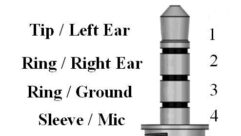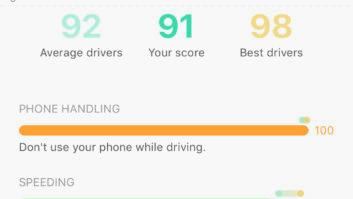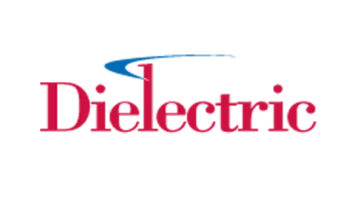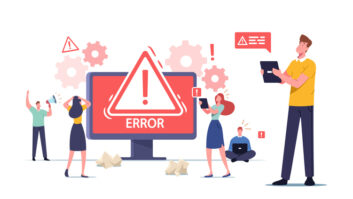Stick with me around the turns here.
(click thumbnail)First, recall that there has been plenty of posturing lately on Digital Rights Management (the “other DRM” to those in the radio technology business), much of it generated by an open letter by Steve Jobs a few months back in which he called for the music companies to drop their demands that digital music downloads be protected by such technologies.
Jobs was responding to increasing pressure, mostly from Europe, to open up the market-dominating iTunes content protection format called “Fairplay” so that songs purchased from Apple’s service would be playable on clients and devices other than Apple’s own iPods and iTunes players on PCs and Macs.
Jobs suggested that the best solution would be to do away with the content protection provided by Fairplay, but that Apple could not do this unilaterally. It needed record companies’ approval to do so, and he called for those companies to make such a move in his open letter.
This attempt to shift blame to record companies was a nice feint, but it avoided the real point. The core of the argument from Europe was not about the use of DRM to protect content but its leveraging to lock customers in to the Apple brand. Remember that Apple is a hardware company, and it makes the bulk of its money in the digital music business from selling iPods and their accessories, not from selling songs on iTunes. So opening the iTunes marketplace to other devices would be understandably counterproductive to its business strategy.
Nevertheless, it got a lot of people thinking about just how important DRM was to the digital music business. After all, as Jobs pointed out, record companies still distribute far more music on CD than via downloads, and CDs have no inherent content protection.
Taking this a step further, all DRM systems used for music downloads today can be worked around by simply burning protected content to CD, thus removing the content protection (and most other metadata) without the audio ever leaving the digital domain. This is akin to locking the doors on a convertible while leaving the top down. So why bother?
Double-barreled
Thus began a semi-serious discussion among record labels of using a popular unprotected format such as MP3 for the sale of music downloads.
Initial distribution would be paid for by the consumer, but subsequent redistribution by that consumer would be uncontrolled — just like a ripped CD. This would allow universal playback of the downloaded content on any media player client and device, since MP3 is the lingua franca of the digital music world. Yes, each paid download could spawn an endless sequence of free copies, but this would be no worse than every CD purchase. (In fact, some smaller digital music stores already operate this way, albeit with limited content selections today.)
As the discussion continued, the idea of advertiser-supported digital music download sites came up, with the ad revenue counterbalancing the potential lost revenue to record companies, and the ads being tolerated by consumers in return for the lack of DRM on such sites’ content. Soon one could envision a viable new paradigm for digital music distribution, which might compete strongly with radio for both listeners and advertisers.
Here was a way to turn the quasi-partnership that record companies and radio stations begrudge to each other today into a full-fledged competition between them. A popular music download site could therefore draw listeners and advertisers away from local radio stations, and provide music discovery plus purchase options at a single location. The user is fairly captive while waiting for a song to download, so this provides an excellent opportunity to play an ad with reasonable expectations for its viewing and retention.
Moreover, these sites could include radio streams — also with advertising, perhaps — to further expose listeners to new music that they might ultimately purchase. Interestingly, because these sites could be operated by the record labels themselves, they might be immune to the increased music licensing fees that regular Internet radio services may soon be subject to.
Speaking of music Webcasting royalties, it should also be noted that these increased fees would only apply to U.S. online radio services, not to those originating offshore. Yet U.S. Internet users could access those offshore streams as easily as domestically originated ones. Here again the music industry (in this case, via its proxy, the U.S. Copyright Office) may indirectly generate greater competition to U.S. radio stations by providing an advantage to foreign Webcasters.
Odd Couple
So the combined effect of advertiser-supported music distribution sites and increased Webcast royalties could conspire to turn listeners and advertisers away from U.S. radio operations — both on-air and online.
Neither of these processes is set in stone, however. As I write, there is considerable protest and the threat of litigation over the proposed Webcast royalties, so they may not stand. Meanwhile, major record companies that have flirted with the concept of MP3 distribution have not confirmed their plans, and some seem to have already decided against going in that direction. (Of course, advertiser-supported music download sites could still come to pass, even with DRM-protected content, but these are less likely to succeed against currently established players in that space.)
Radio stations could also fight fire with fire by developing (or by working with third parties to establish) their own online music sales portals. A good example of this already in operation is the WMMR Digital Music Store (and similar stores at other stations’ Web sites), operated by Tunegenie.
In any case, through a series of strange circumstances, the music industry has recently become uniquely empowered to affect the future of U.S. radio. Just how the record and radio industries — and perhaps more important, their customers — react will be pivotal to the outcome of this unusual arrangement, but it is nearly certain that many longstanding business relationships will be forever changed in the process.













